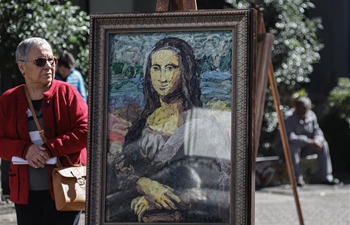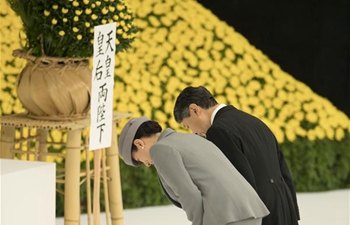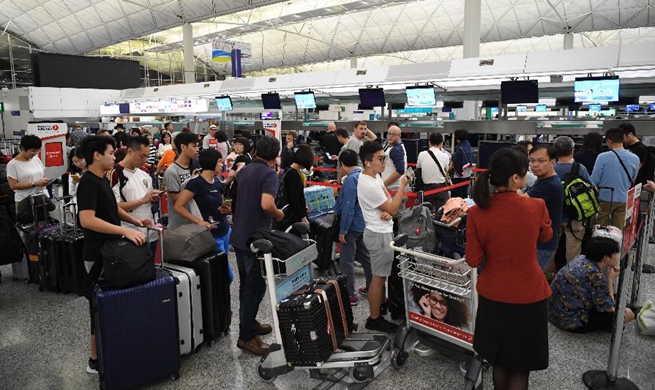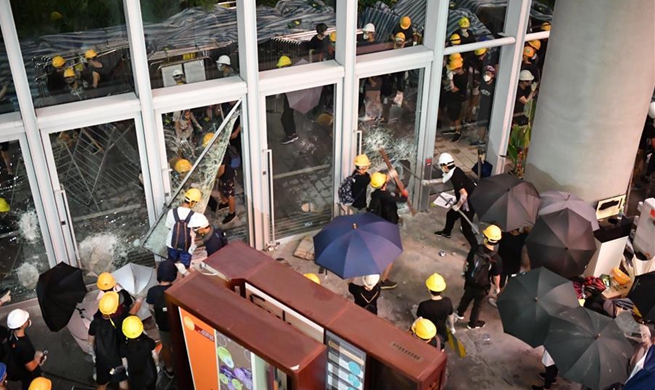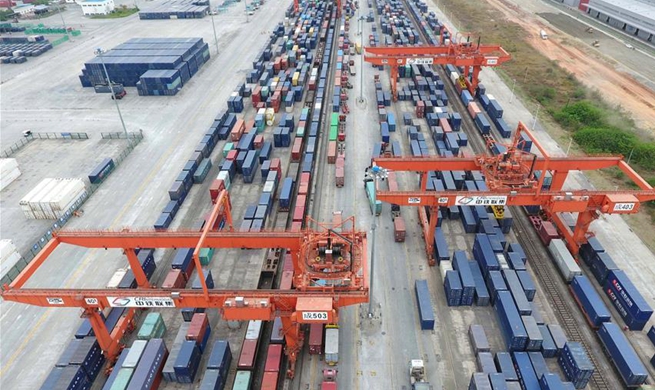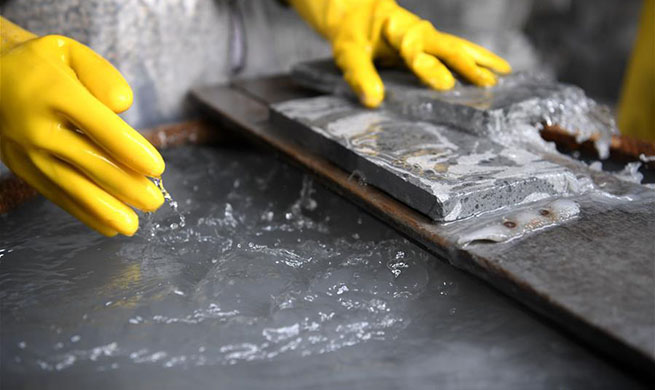BUENOS AIRES, Aug. 16 (Xinhua) -- The S&P Merval (MERV) index of the Buenos Aires Stock Exchange went up 3.74 percent Thursday, a second day in a row of gains after nosediving on Monday in a market panic in response to the results of the newly-held Argentine primary elections.
Analysts blame the turbulence on the continuous economic recession and financial volatility in the South American country. They say that although the market is digesting the negative election results, uncertainties will remain until the end of the general elections scheduled for late October.
MARKET REACTION
In the primary elections featuring 10 presidential candidates on Sunday, President Mauricio Macri and his vice presidential running mate, Miguel Angel Pichetto, of the conservative ruling "Juntos por el Cambio" party, or Together for Change, obtained some 32 percent of the votes, while Alberto Fernandez and his vice presidential running mate, ex-president and current Senator Cristina Fernandez, of the opposition party Frente de Todos -- Front of All -- garnered over 47 percent.
In Argentina, the primary elections are long considered a weathercock for the upcoming presidential vote. As results indicated a higher odds for Fernandez to win in the first round, many analysts are concerned that he will seek a renegotiation of loans by the International Monetary Fund (IMF), which is expected to raise economic uncertainty.
Immediately in response to the primary election results on Monday, the MERV index recorded a slump of more than 37 percent, the peso fell more than 20 percent against the U.S. dollar, marking the biggest single-day decline since 2015, while Argentina's sovereign bonds dropped 25 percent on average.
Shen An, an expert with the International Affairs Research Center under the Xinhua News Agency, said the primary elections posed a "great test" for Macri and the results indicated a rise in social discontent generated by a vicious circle of high debt, high inflation and negative growth.
Meanwhile, the business and financial communities support Macri and his "pro-market" government, and their worry about Macri's possible defeat in the general elections was behind the market reaction on Monday.
Wang Fei, an assistant researcher with the Institute of Latin American Studies under the Chinese Academy of Social Sciences, said investors took measures to protect their interests, and their concern over a prospective win by Fernandez, who could reverse the "pro-market" changes introduced by Macri's administration, induced volatility in the financial market.
STABILIZING EFFORTS
Argentina's major newspaper "Clarin" described the market reactions as a "financial tsunami." For Shen, the market just "overreacted" and it is too early to talk about a new Argentine financial crisis.
Argentina's central bank took measures on Monday and Tuesday to stabilize the exchange rate, and raised the benchmark interest rate by 10 percentage points to 74.78 percent.
As a result, the MERV index grew 10.2 percent on Tuesday while the bonds declined less and the peso depreciated less. To further calm the market, on Wednesday and Thursday Macri announced a series of economic measures, including raising the minimum wage, reducing taxes for workers, establishing a debt buffer period for small and medium-sized businesses, increasing subsidies for children, and suspending the value added tax (VAT) on basic food basket products through the end of this year.
Wang said he believes that Macri's government hasn't exhausted monetary and economic policy tools to stabilize the market. In addition, Argentina's close relations with the IMF and the White House could help restore market confidence.
Shen said Argentina could use the IMF loans granted last year in preventing a market collapse, and new, favorable policies or positive economic data would also help stabilize the market in a short term.
SPILLOVER
Argentina's financial market situation has led to a depreciation of the Brazilian currency real against the U.S. dollar as well as a 2 percent decline on Monday in the Sao Paulo stock market and a further 2.94 percent drop on Wednesday.
As both Argentina and Brazil are important members of the regional trade bloc Southern Common Market (MERCOSUR), their financial markets are vulnerable to each other's conditions.
Since the 1980s, Latin American countries have suffered repeated economic and financial crises in a domino-like fashion. For example, the Argentine financial crisis that broke out at the end of 2001 caused serious financial turbulence in Brazil, Uruguay, Paraguay, Peru and Chile, among other countries.
Shen noted that after entering the 21st century, countries in the region have mostly introduced stringent financial disciplinary measures and benefited from a supercycle of commodity prices, which helped them improve their foreign exchange reserves and the current account deficit.
More capable of confronting external risk factors, Latin American countries are in a stronger position to weather any current financial turbulence in Argentina, Shen said.
Wang said Brazil's economic performance, especially with its low inflation, enables more policy options for it to cope with the challenges from outside.
At the same time, the two experts agreed that the economic outlook for Argentina is worrying, citing a public debt burden as high as more than 80 percent of the gross domestic product at the end of 2018, the highest in Latin America. On Wednesday, Argentina's international country risk index exceeded 1,900 points as announced by JP Morgan, a record in a decade.
Shen hasn't ruled out medium-term financial market fluctuations in Argentina given the present transfer of political power and deterioration of economic indicators.





